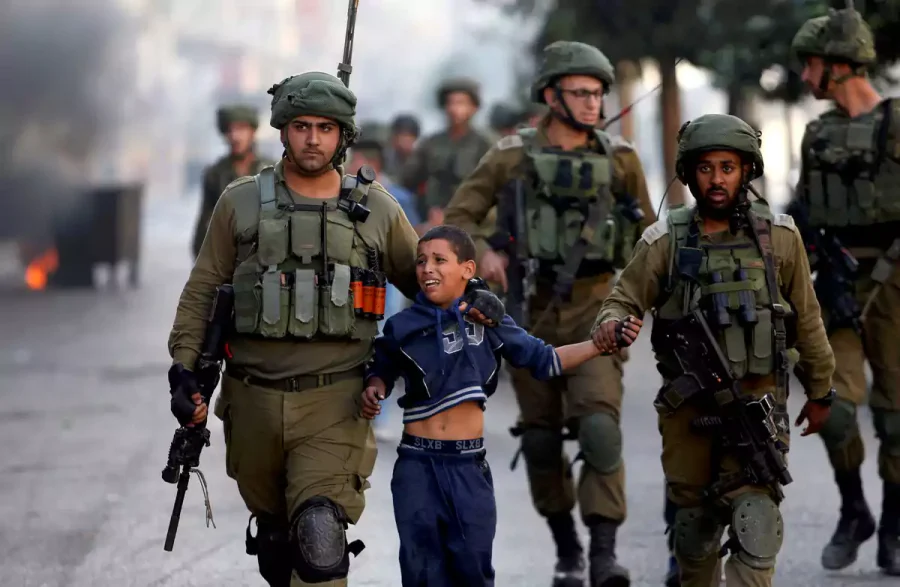The ongoing conflict in Gaza has taken a devastat-ing toll on children, with one child losing their life every 15 minutes due to Israeli bombings, ac-cording to a Palestinian not-for-profit.
Since the commencement of Israel’s airstrikes on the besieged Palestinian enclave on October 7, more than 100 children have been martyred each day, making it one of the deadliest Israeli assaults in decades, claiming over 3,400 Palestinian lives.
A spokesperson for The Defence for Children International – Palestine (DCIP) described the situation as “a genocide in real-time.” It’s important to note that at least 14 children were among the 1,400 Israeli victims of the Hamas attack on October 7, and roughly 200 people were captured by Hamas, including children. Israel, however, has not disclosed data on the demographics of those martyred in that attack.
International laws and conventions, such as the Geneva Conventions of 1949, are meant to protect children during armed conflicts, mandating that they be shielded and treated humanely. Israel ratified these conventions in 1951, partly in response to the Holocaust, which saw the tragic loss of over one and a half million Jewish children in Europe.
However, Israel doesn’t recognise the 4th Ge-neva Convention, designed to safeguard civilians fighting an occupation, as it doesn’t consider Palestine to be occupied territory.
Israel argues that its disproportionate use of military force in Gaza is a legitimate means to combat Hamas, claiming that civilian deaths, including children, do not constitute war crimes. This stance has sparked widespread debate and criticism within the international community.
The impact of the ongoing war on children is deeply concerning. Parents in Gaza, such as Esra Abu Ghazzah, grapple with the challenge of calm-ing their children amid the bombings and destruc-tion.
Many children are experiencing physical and psychological distress, including vomiting and bedwetting, as a response to the heightened fear.
A staggering 95% of Palestinian children in Gaza are living with the psychological effects of war, according to a research paper by Palestinian psychologist Dr. Iman Farajallah. Such experiences can lead to emotional and behavioural issues, such as restlessness, regression, or aggression.
Additionally, schools have been severely af-fected, with education taking a backseat as schools transform into makeshift shelters. The United Nations is currently providing shelter to approximately 400,000 displaced Gazans in its schools and other facilities. Unfortunately, several schools have incurred damage from Israeli bombings, resulting in casualties.
The lack of access to essential resources, such as food and water, further exacerbates the suffering of children. The total blockade imposed by Israel has prevented food and water from entering Gaza, and although some water supplies were resumed, electricity shortages persist, making water distribution a challenge.
This situation puts children at a higher risk of dehydration and malnourishment. Poor water sanitation also increases the likelihood of diarrheal diseases, the leading cause of child mortality among those under five globally.
The long-term consequences of this conflict are devastating. Even for those who survive, will have to learn how to endure without their family members, as the situation is dubbed “a war against children.” The psychological impact on civilians and, more importantly, children is expected to be catastrophic.
In light of these dire circumstances, various international aid organisations, including Save the Children and UNICEF, are urgently calling for a ceasefire to protect the children and families of Gaza. The international community acknowledges the need to shield children from harm during times of conflict, emphasising that children must always be safeguarded and should never become victims of war.—Agencies









